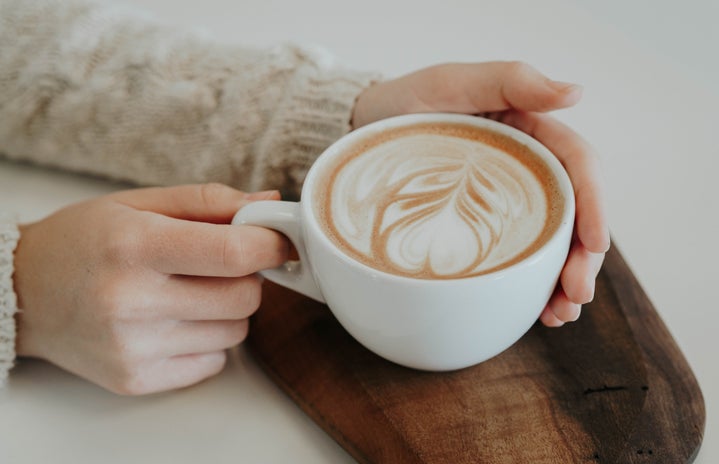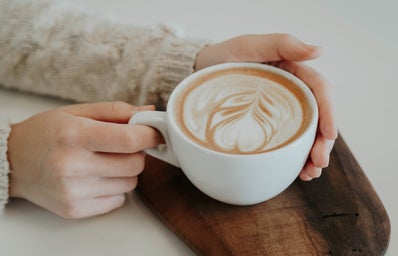Have you ever thought about how much money you spend each month on coffee?
Whether you’re a Starbucks or Dunkin’ person, or you simply make your own at home, coffee has become a crucial part of our routines.
As a coffee enthusiast myself, it’s hard to imagine being able to function without my daily dose of sweet, sweet anxiety-inducing juice.
Yes, despite all the negative effects coffee has on my body, I still willingly drink it.
Why? Because you can’t put a price on productivity apparently!
Obviously, our society has an unhealthy fixation with productivity and encouraging using all your time to be as efficient as possible. Any moment of rest results in a self-inflicted guilt trip and the inability to relax.
Coffee gives me the boost I need to get my day started and, honestly, it feels like a box I check on my mental to-do list. The act alone of making or buying my coffee signals to my brain it’s time to get into work mode.
At what cost though?
If you’re someone who struggles with anxiety, you probably have a love-hate relationship with coffee, if you even dare to go near it.
Symptoms such as restlessness, sweating and jitters tend to be heightened when you consume any form of caffeine.
“The natural effects of caffeine stimulate a host of sensations, such as your heart beating faster, your body heating up, your breathing rate increasing — all things that mimic anxiety,” said Susan Bowling, a psychologist at the Women’s Health Center at the Wooster Branch of Cleveland Clinic. “Psychologically, it’s difficult for your mind to recognize that this is not anxiety because it feels the same.”
The benefit of drinking coffee — for an energy boost — could even be proven to be counterintuitive for those with anxiety. According to Health, someone could have an anxiety attack induced from the caffeine, stay up all night grappling with the nerves, drink more coffee in the morning to combat the lack of sleep and thus, perpetuate the cycle.
You might look at coffee a little differently when you realize caffeine is considered a stimulant drug. In other words, it’s in the same vein as cocaine and meth. Not exactly a connection you’d make to your caramel macchiato, right?
With that being said, caffeine is not a hard drug in the way cocaine and meth are, but it still triggers your body’s “fight or flight response” the same way other stimulant drugs do.
In addition to increasing your heart rate, caffeine also raises blood pressure. This is something to be concerned about if you’ve been diagnosed with hypertension.
While coffee isn’t inherently bad for you, you might want to reevaluate how much you consume and how frequently, especially if you struggle with anxiety. Improvements in your health and sleep schedule might help with being more productive, even without the aid of caffeine.



